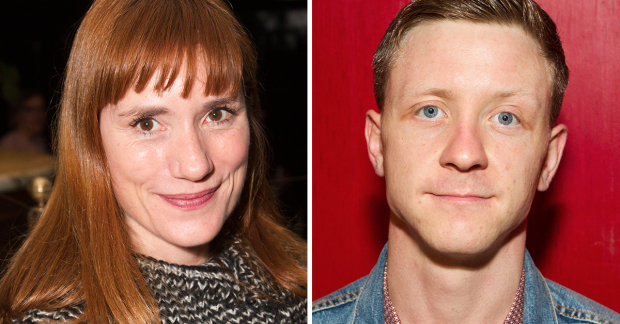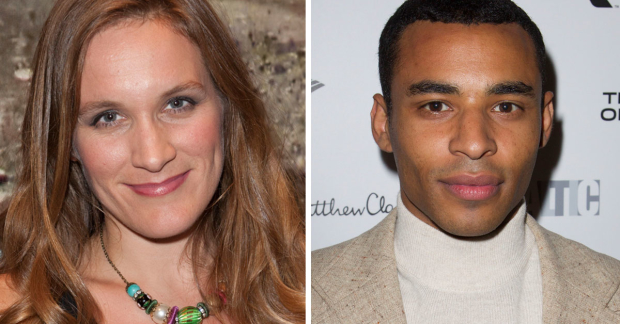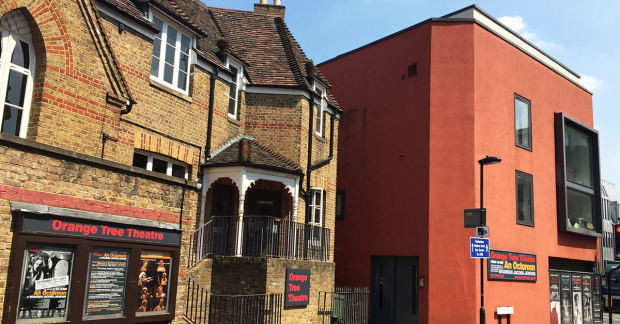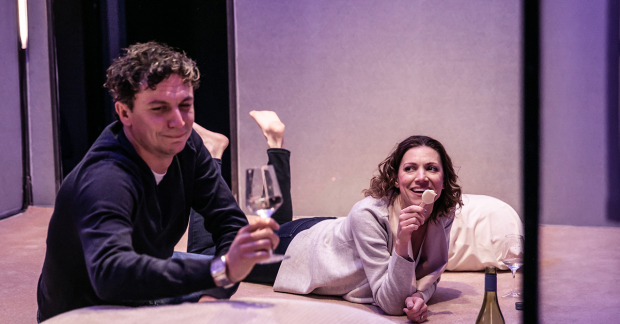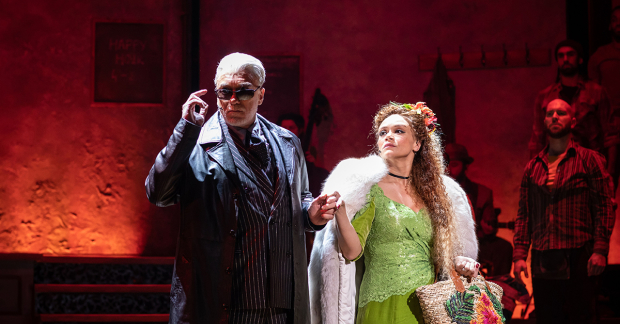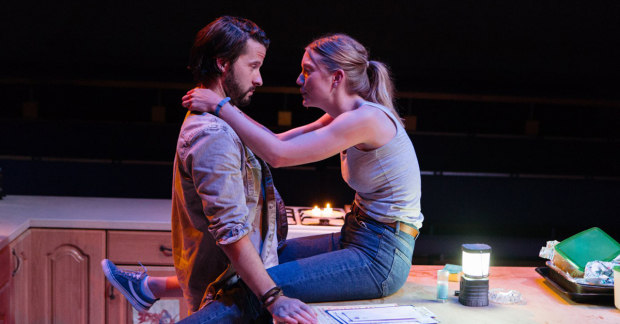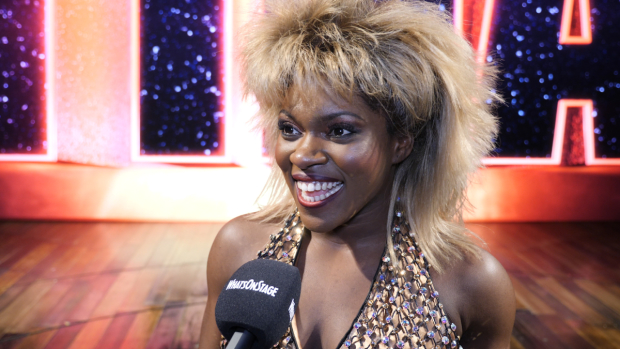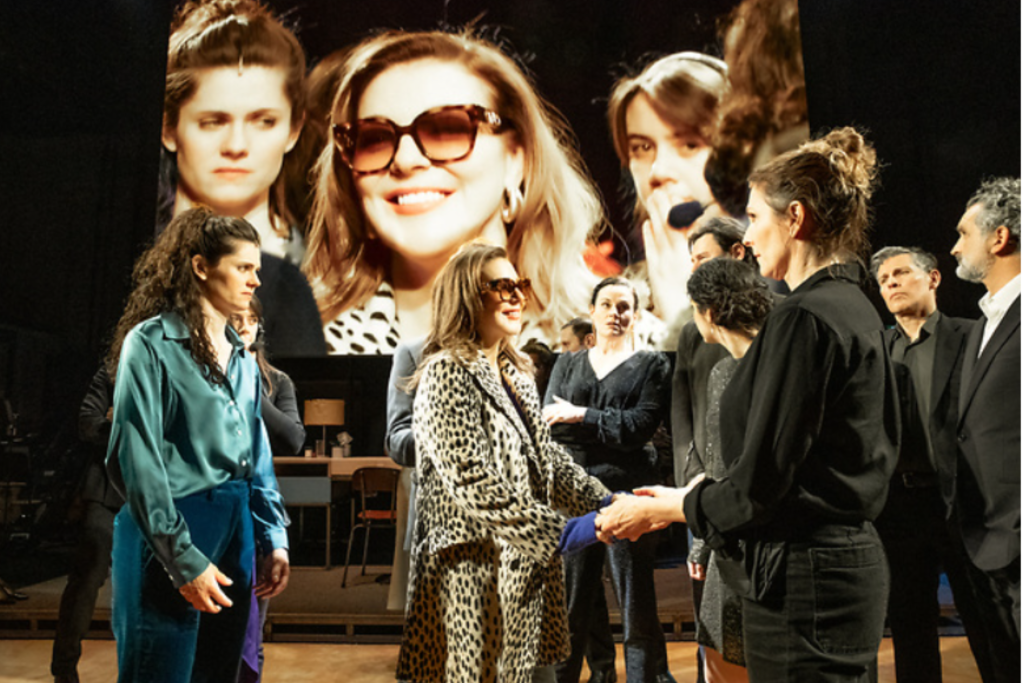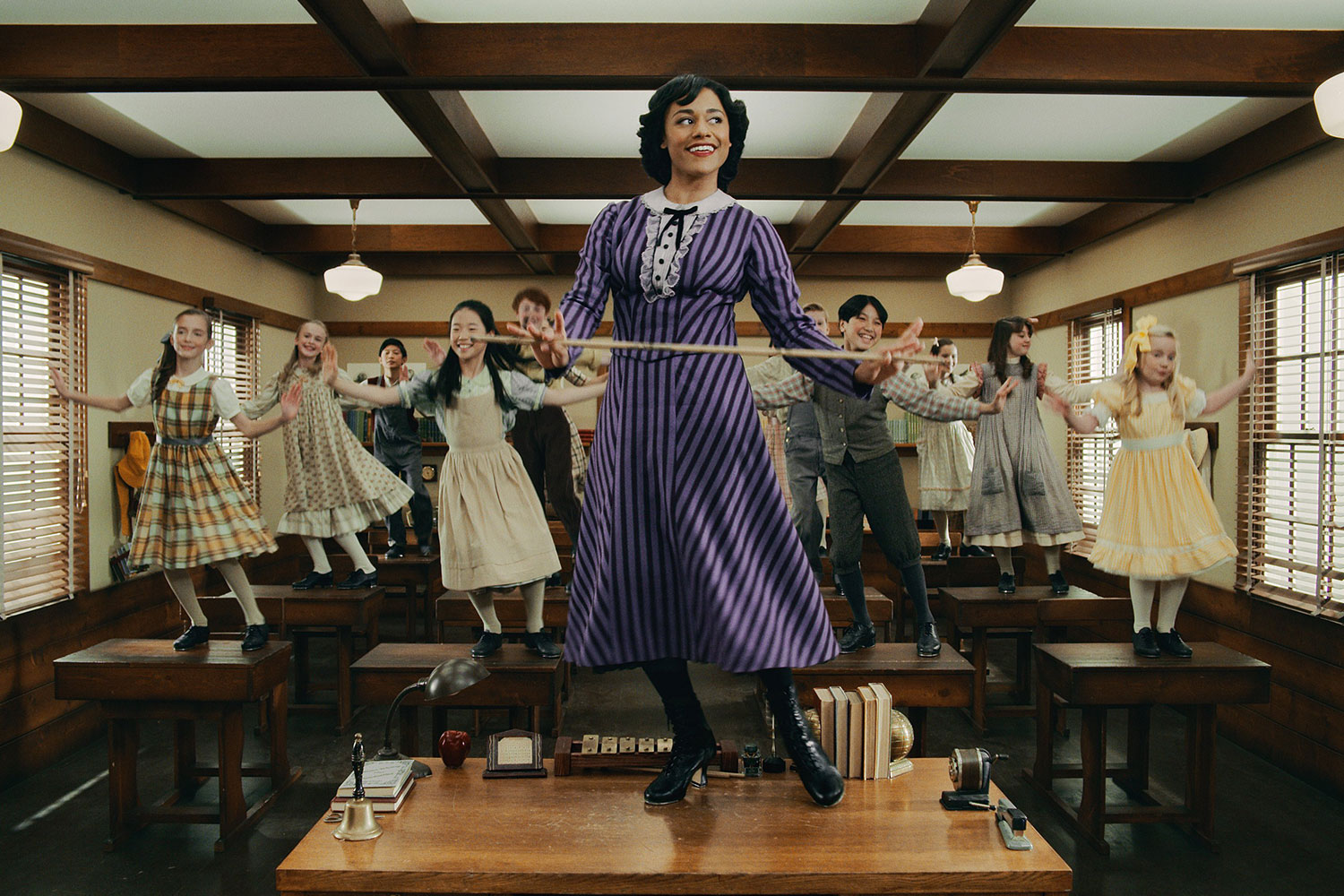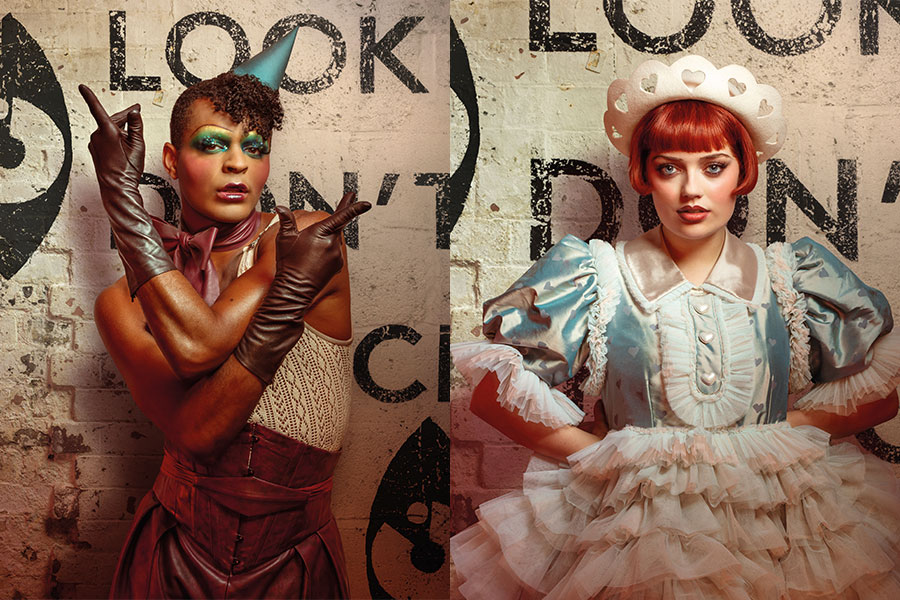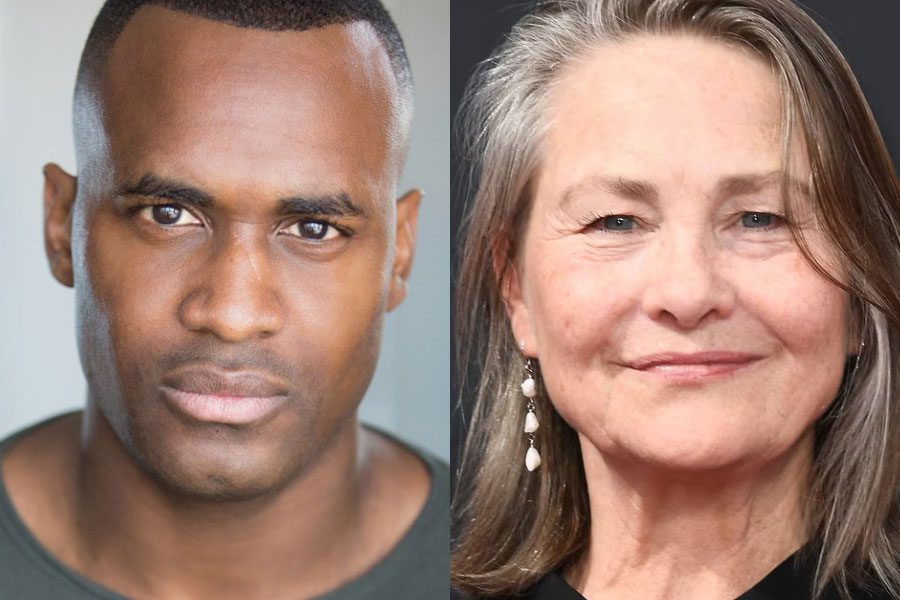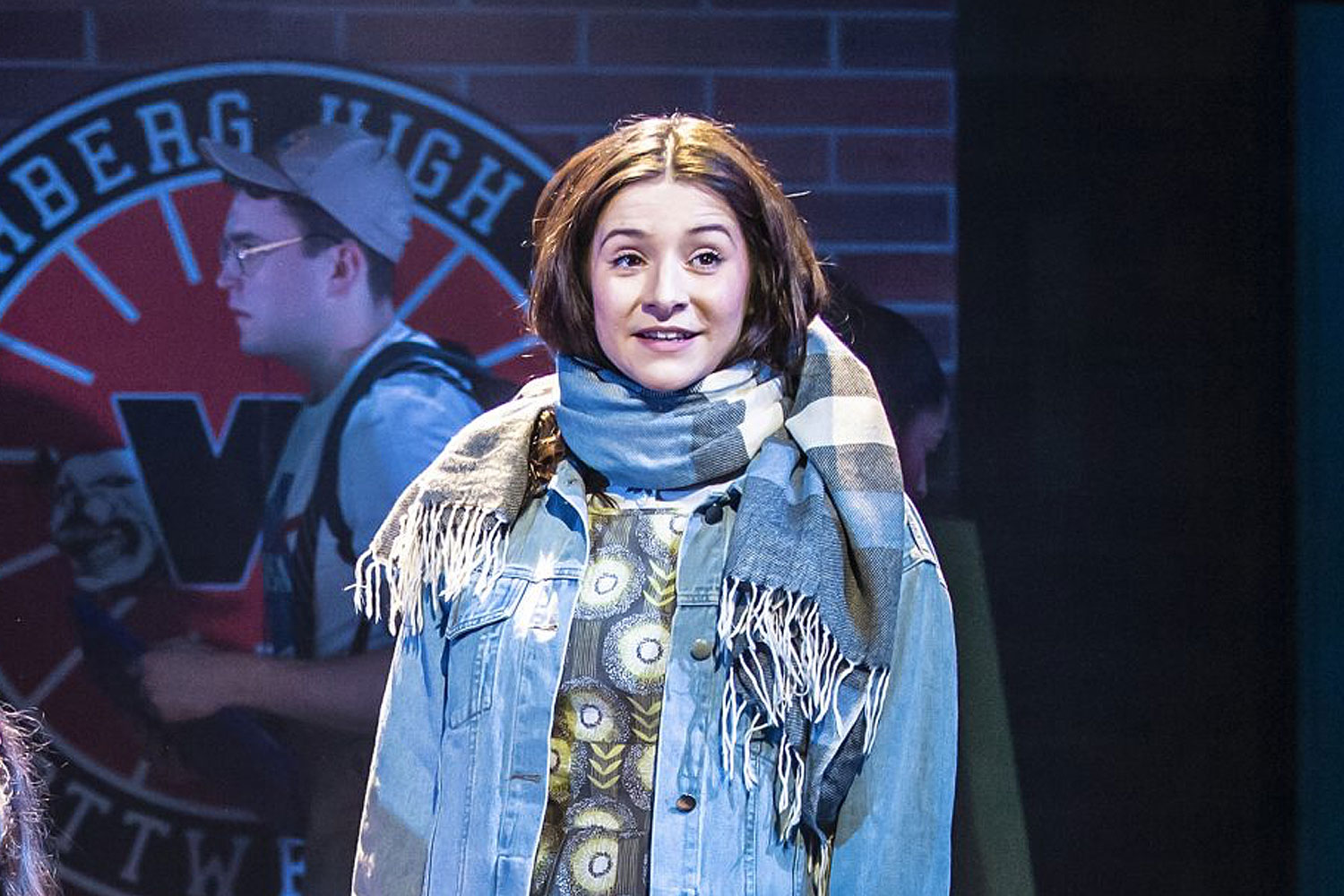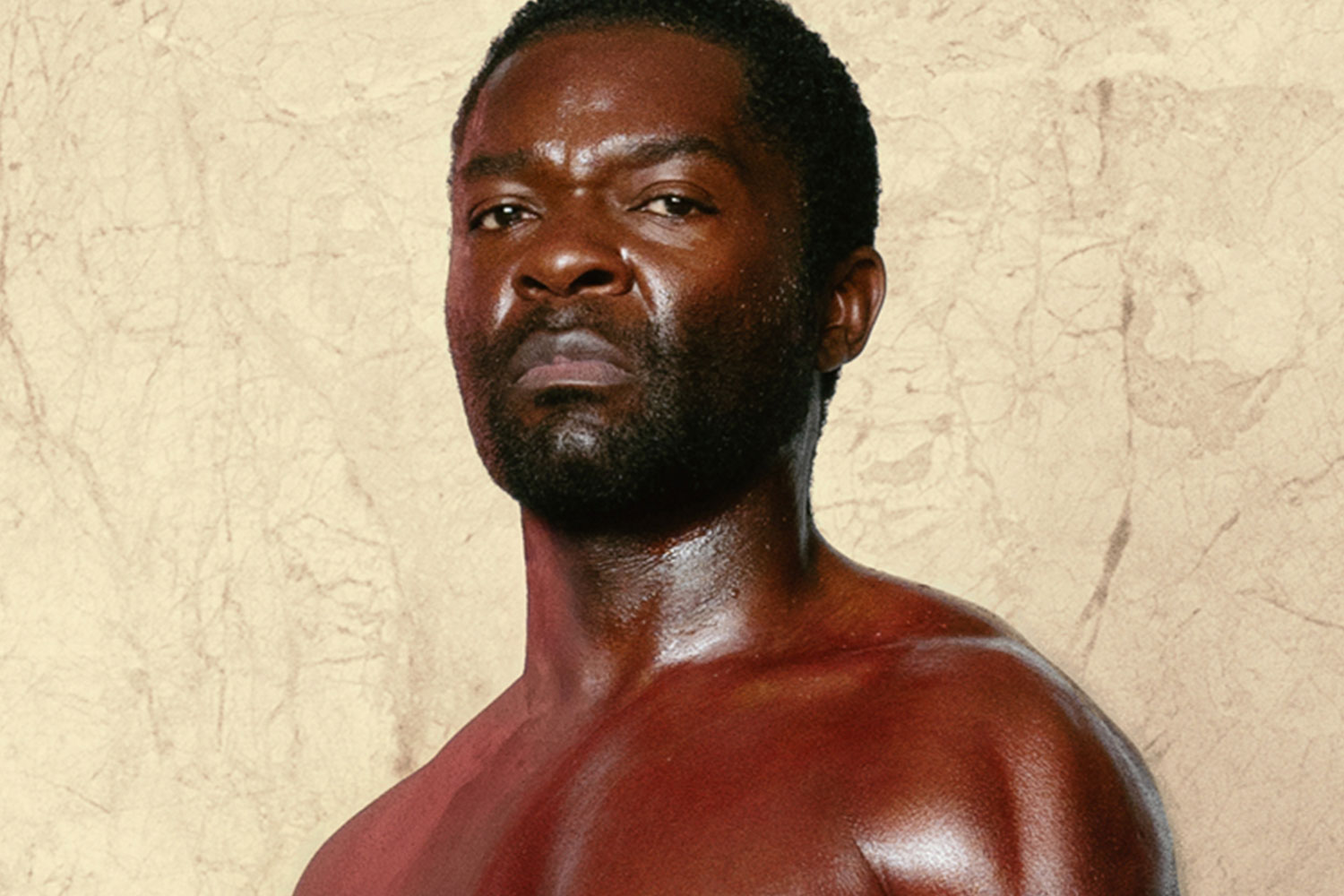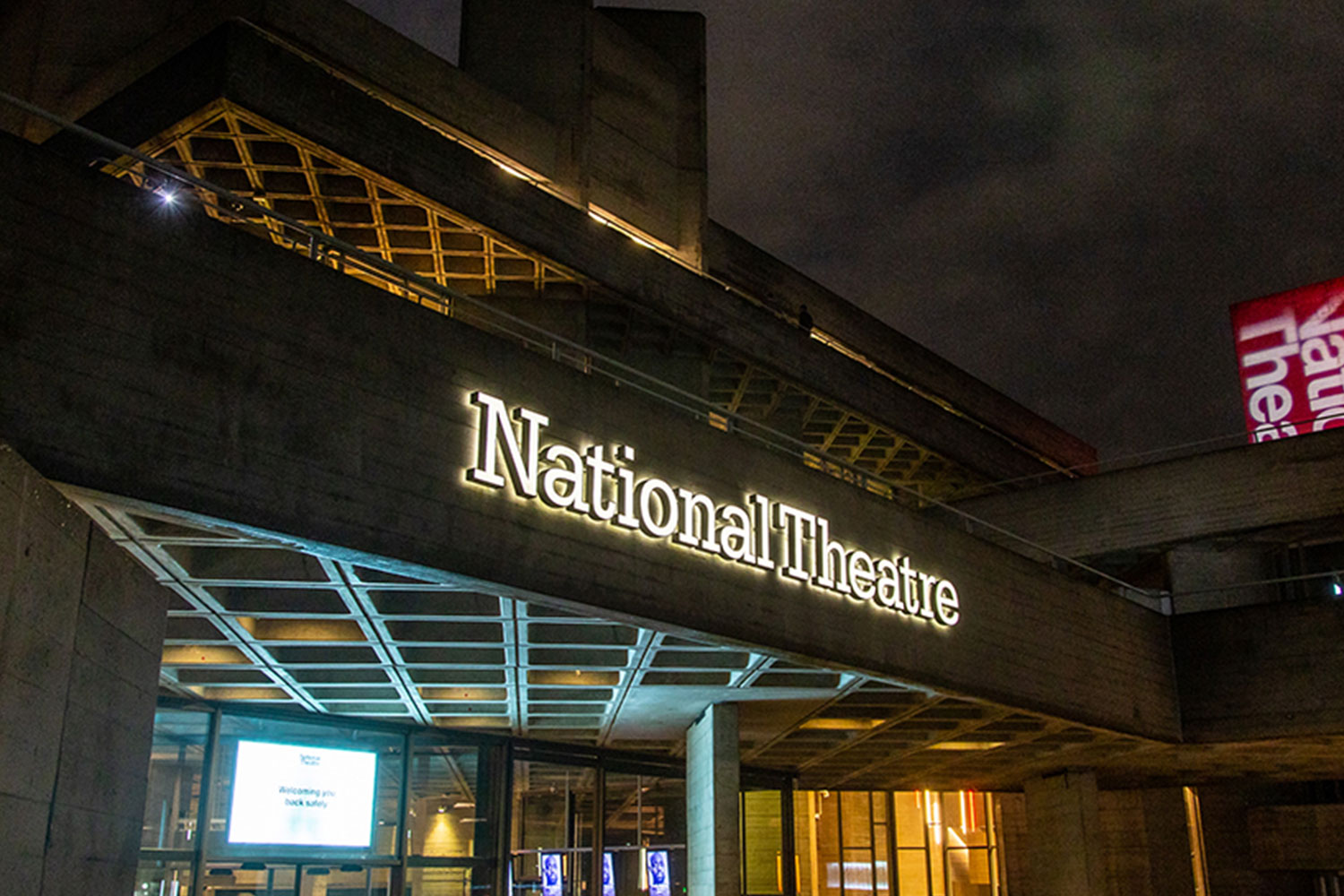Review: Out of Water (Orange Tree Theatre)
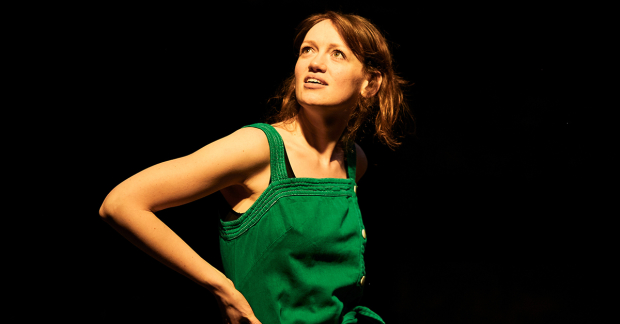
© The Other Richard
Zoe Cooper's new play Out of Water begins with the singing of Geordie folk songs. With the audience sat on blue plastic chairs set in-the-round it could be in a school hall, or a community centre. The blend of calming, friendly vocals bathes Camilla Clarke's set which has a fish tank tucked away in a corner and wooden floorboards which look as though they might just crack open if you step on them the wrong way.
Out Of Water follows the lives of Claire (Lucy Briggs-Owen) and her wife Kit (Zoe West), as they move from London to Kit's hometown in South Shields after learning they are expecting a baby. Claire, who carries the baby, also has a new job as the Inclusion Manager at the local 'requires improvement' school, working with pre-identified pupils who need extra help due to their home circumstances.
Using a mixture of narration, multi-roling, and some well-placed observational comedy (rosé wine mum Karen and an eavesdropping elderly couple are highlights), Cooper's play is a tender look into ideas of parenthood, gender, and working out who you are – whether that's geographically or evolutionarily. At times, the narration can become a little repetitive, and it is Cooper's longer moments of prose which stand out. Fish's (Tilda Wickham) monologue using lip-syncing and excerpts from nature documentaries is mesmerising, aided by Jennifer Jackson's swift and subtle movement direction.
Performances throughout are on fine form: Briggs-Owen presents a nervous and distanced Claire whilst Wickham tenderly portrays Fish, a student from a care home with a penchant for wild swimming. Meanwhile, West switches between aggressive and backwardly-caring sport science teacher Brendan and the buoyant Kit with ease.
Out of Water is a play which often refers to itself as a story; the characters are somewhat aware that they are telling one, and that they consciously miss parts out. Words – often referring to sexuality or violence – are cut off from sentences, and the play skirts around the larger ideas of progress and who this layered story belongs to. Kit's moments in the story, for instance, seem to contribute less and it's curious that a story so based upon northern roots and class is told mainly through the eyes of the wealthy woman from London.
With its tender text and careful design, Out of Water is a subtle exploration of identity. The play consistently dips its toe into several themes, which is perhaps why the final image of stepping into water doesn't feel as thrilling or concluding as it could be.



